-
What Is Creative Reuse?
Recycling serving Atlanta can be done in quite a few different ways . Recycling can be broken down into downcycling and upcycling, and the latter is also known as creative reuse. In some senses, creative reuse is the most productive form of waste disposal because it aims to turn unwanted or unused items into something more practical or valuable. You can apply the principles of creative reuse to almost anything, and thinking outside the box can go a long way. Keep reading if you’d like to learn a little bit more about creative reuse.
The purpose of upcycling and creative reuse is to add value to an existing product. This is in contrast to downcycling, which takes a product and recycles it in a way that gives it less value. Upcycling is particularly popular in the art community. With a creative eye, you can take old, broken, or worn out products and use them to create interesting sculptures, still life paintings, or unique photographs. By repurposing old materials that would otherwise be thrown away, you save room in landfills and get to enjoy more valuable products. As is the case with all recycling, this goes a long way in protecting the environment.
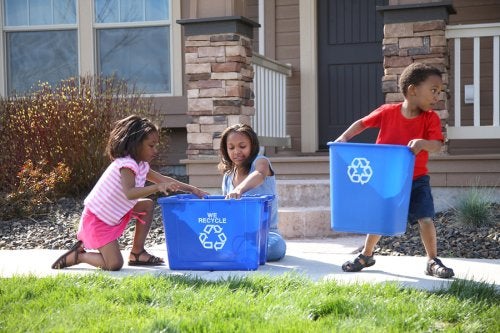
-
Are You Doing Everything to Reduce Your Carbon Footprint?
We live on the only inhabitable planet that we know of, so it makes sense that we should do what we can to take care of it. If everyone took steps to reduce their carbon footprints, we could leave a healthier environment for future generations. The good news is that there are countless ways you can go green. From the way you use the energy in your home to recycling serving Atlanta, everyone has the ability to make the push towards sustainability. Think about your energy usage, waste disposal, and traveling routines, and read on to see if you are doing everything to reduce your carbon footprint.
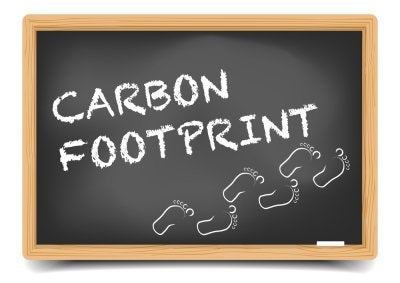
Home Energy
You need to power your home, but there’s a right way and a wrong way to do it. If you want to reduce your carbon footprint and extend the lifespan of your heating and cooling appliances, make sure you keep your windows and doors closed when you turn on the heater or air conditioner. This will trap conditioned air inside, rather than letting it escape and mix with air from the exterior of the building. You can also invest in home automation technology like smart lighting and set your appliances to remote timers.
Waste Management
People generate an almost unfathomable amount of waste, and it all needs to go somewhere. Landfills are filling up with trash, and much of it could have been reused. You can get started on reducing your carbon footprint by committing yourself to recycling. Recycling is one of the most responsible ways to handle waste management, and it’s easy for anyone to do. This practice takes materials from used products to create brand new products, which spares virgin materials and saves energy.
Driving and Travel
As fun as a joyride in a new car can be, it’s a good idea to think about when you absolutely need to drive and when you might be able to walk. If you’re taking a quick trip into town for a bite to eat, you can even consider riding a bicycle to limit your emissions and reduce your carbon footprint.
-
Reducing Industrial Pollution
As the owner or operator of an industrial facility, it is up to you to make sure that your methods and materials are environmentally friendly. Along with practicing smart waste management , there are other practices that you can implement that will help you to cut back on your pollution. With services from a company that specializes in managing waste near Atlanta, you can make sure that your waste disposal and pollution reduction methods are environmentally friendly.
There are several steps that you can take to reduce industrial pollution. Rather than tossing all of your waste in the dumpster, you may want to figure out whether some of these materials can be processed at the recycling center. As you are creating a waste management plan, you may also want to carefully assess that amount of emissions that are generated through your industrial processes. Cutting back on emissions will go a long way towards preserving the environment.
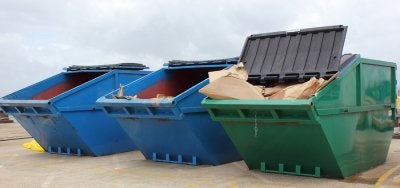
-
The Lifecycle of Recycled Paper
Paper products surround us throughout our days, and we may not think about what happens to paper after it is tossed in the recycling bin. In this video, you will take a look at some amazing recycling facts about paper. In the past 26 years, the United States alone has recycled 1 billion tons of paper. When you purchase recycling bins in Atlanta, you can rest assured that your waste management company will send your paper goods to the correct recycling facility.
A recycling company will bring your paper waste to a mill for processing. At the mill, the paper will be shredded into a product that is known as pulp. Next, this pulp will be sent to the recycling center so that it can be transformed into new paper items. When you purchase a paper item, chances are that it has been manufactured from recycled consumer waste.
-
Why Industrial Recycling Is Important
More and more, people are learning about what can and can’t go in their household recycling bins in Atlanta as they embrace their role in reducing the impact that they have on the environment. While residential recycling is important, it’s essential not to underestimate the important of industrial recycling .
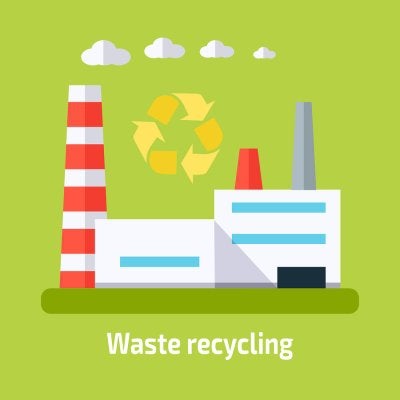
Recycling Preserves Resources
There are several reasons why people should feel motivated to recycle. First, when waste is sent to landfills, it can release harmful greenhouses gasses and chemicals into the air. Also, processing raw materials to create goods requires a huge amount of energy and is often environmentally destructive, while recycling demands less energy and reuses materials. Recycling can help preserve natural habitats and our current way of life, and it can also save businesses on operational costs and taxes.
Industries Create Waste
Industries and businesses create incredible amounts of waste every day. Food processing facilities, for example, end up tossing large amounts of food and throwing away food containers and shipping boxes. A distribution center might go through large amounts of paper every day, and automotive facilities and appliance manufacturers may generate massive amounts of scrap metal. In addition to creating the waste, disposing of it can be costly and wasteful, as it must be hauled to landfills where it takes up space. Because industries create so much waste every day, the importance of recycling in this area is critical.
Recycling Reduces Waste
If you’re interested in lowering your company’s carbon footprint and reducing your waste disposal costs, then there are several steps that you can take. First, learn what waste collection services are available for businesses in your area. Then, implement a recycling system that focuses on your company’s needs. If having a few small bins make sense for your office, then installing just one each for paper, plastic, and glass and educating your team about what should go in them is a great way to foster a greener company.
-
Spotlight on Non-Ferrous Metal Recycling
All recyclable materials have their worth, but non-ferrous metals are particularly valuable. If your company produces scrap metal or if you are interested in the effects of recycling on the environment, then you can benefit from learning more about non-ferrous metal recycling near Atlanta.
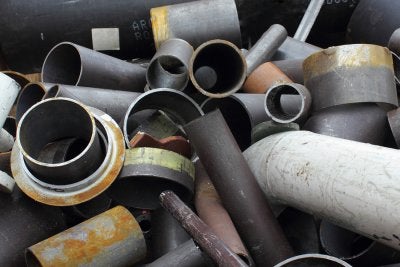
What are non-ferrous metals?
Non-ferrous metals include copper, zinc, tin, nickel, aluminum, lead, gold, silver, platinum, and others. The metals in this category do not contain iron, are non-magnetic, and are more resistant to corrosion than ferrous metals. Of all the recyclable materials, non-ferrous metals are among the few that do not break down or lose their physical or chemical properties during the recycling process, meaning that they can be reused an infinite number of times without changing in composition. These characteristics make non-ferrous metals incredibly valuable recycling materials.
What items are made from non-ferrous metals?
A large amount of the non-ferrous metal that is recycled in the United States comes from industrial waste resulting from the production of goods like cars and appliances. Some examples of industrial sources of non-ferrous scrap metal include automobile batteries, radiators, boats, window frames, airplane parts, aluminum siding, pipes, and electrical wires. As a consumer, you might find yourself recycling these metals in the form of soft drink cans, packaging materials, cookware, cutlery, batteries, tin cans, and door knobs.
How are non-ferrous metals recycled?
If referring to volume, then non-ferrous metal recycling doesn’t account for much of all recycled materials in the United States. However, in terms of scrap metal, non-ferrous metal scrap made up more than 50% of total scrap recycling industry earnings in the country in 2012. The process starts with non-ferrous metal being collected through industrial, commercial, and residential recycling systems. The metal is then transported to a metal recycling center, where it is sorted. Each variety is then processed, refined, and converted into billets and ingots which are later sold to industries to be transformed into goods and start the process once again.
-
Types of Non-Hazardous Industrial Waste
Having an effective and efficient recycling and waste disposal system is important for any business. If your company is part of an industry that produces waste, then understanding which materials are hazardous and which are not can be essential for developing a resourceful waste management program. If you regularly deal with industrial waste near Atlanta , then continue reading to learn about which materials are considered non-hazardous.
Non-hazardous industrial waste falls into several classifications. Class 1 wastes can be potentially threatening to the environment and human health, and examples of these include liquids that can ignite at temperatures exceeding 150 Fº and soils that are contaminated with petroleum hydrocarbons. Class 2 wastes are typically accepted at local landfills and can include items like non-radioactive non-surgical medical waste and depleted aerosol cans. Finally, Class 3 wastes do not decompose or react with other materials, and they are also insoluble. A few examples of Class 3 wastes are glass, rocks, bricks, and some plastics.
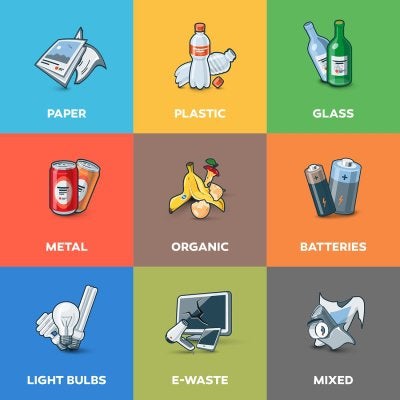
-
The Impact of the Recycling Industry
When you toss a used soda can into a recycling bin for aluminum materials, you may not give much thought to where it goes after or what type of impact that simple action can have. Watch this video to learn how recycling your waste near Atlanta impacts society and the environment.
For over 200 years, the recycling industry has provided countless benefits for the environment and the economy. When you place your recyclable waste into a recycling bin, it is processed and converted into a clean, high-quality product. This means that new items can be created with much less environmental impact. Also, in the United States alone, this industry directly employs more than 140,000 people, making it incredibly beneficial to the economy.
-
A Look at Different Types of Industrial Waste
Businesses and consumers all over the country depend on industrial plants to do the heavy lifting involved with production and manufacturing. As you can imagine, manufacturing plants produce a large amount of waste that has to go somewhere. Industries have the added challenge of ensuring that their waste doesn’t contaminate the surrounding environment. Here’s a quick look at the types of industrial waste that a waste management company in Atlanta may end up handling.
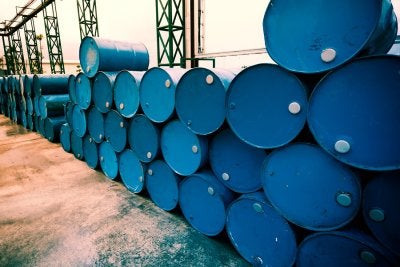
Recyclable Materials
Much of the waste produced or received by industries can be recycled. The trick is to determine exactly which items can be recycled and make sure they make it to the appropriate facilities. For instance, an industrial plant may receive thousands of boxes full of materials necessary for production. Once the contents of those boxes are removed, the boxes themselves can be recycled.
Non-Recyclable Waste
Of course, not everything can be recycled. There are many items that will need to be picked up by a waste management company and delivered to a landfill, or else reused in a more creative manner. Working with waste experts to identify the proper disposal methods for certain materials can help ensure that your plant is in compliance with the law.
Manufacturing Byproducts
Manufacturing plants are hard at work every day producing products that are shipped around the world. As you can imagine, there are also plenty of byproducts left on the facility floor. Much of the time these byproducts can be collected and reused for other industrial purposes—other times they need to be recycled or otherwise disposed of.
Hazardous Waste
Manufacturing millions of units of product can be messy business. Many industries rely on hazardous materials to create their products in a manner that is consistent with consumer expectations. However, these industries are responsible for ensuring that any hazardous materials are disposed of properly, both for the sake of their employees and the surrounding environment.
-
Why Should Your Business Use a Baler?
Space is a constant concern among business owners. For many, the availability of space allows for the storage more merchandise, which can translate to higher sales. If your storeroom or warehouse is full of paper, cardboard, and other forms of waste, then you probably don’t have enough space for merchandise and other useful items. By renting a baler from a waste management company in Atlanta, you can break down your waste into compact bales and free up more space for your business.
There are a number of other benefits that come with renting a baler. For one, consolidating your waste can reduce the total number of waste disposal trips you make and help bring down the costs associated with waste. Under some circumstances, you may even be able to turn your recycling efforts into a whole new revenue stream. There are many businesses that can benefit from a baler, including distribution centers, department stores, office complexes, supermarkets, and large restaurants. If you have a lot of cardboard or paper that you’re not sure what to do with, talk to a waste management company near you about renting a baler.
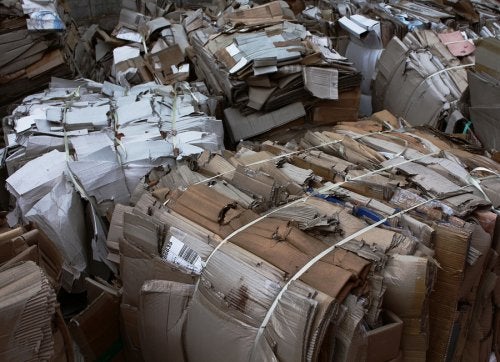
RECENT POSTS
categories
- Uncategorized
- Waste Management Atlanta
- Waste Disposal and Recycling
- Hazardous Waste Disposal
- Chemical waste removal
- solid waste removal
- R3 Program
- Sustainable Organizations
- Sustainable Waste Removal
- Commercial Waste Removal
- Materials Management Program
- Dumpster Rental
- Roll Off Dumpsters
- Construction Site Waste Removal
- Sustainability
- Recycling in Atlanta
- Industrial Recycling
- Industrial Waste Removal Services
- Southern Waste & Recycling
- Waste Removal Atlanta
- Waste Specialists
- Atlanta
- Infographic
- Front Load Dumpsters
- Rear Load Dumpsters
- Reusable Electronics
- Dump Truck Atlanta
- Recyclable Electronics
- Trash Compactors
- Recycling
- Recycling Program
- Office Recycling
- Metal Recycle
- Electronic Waste
